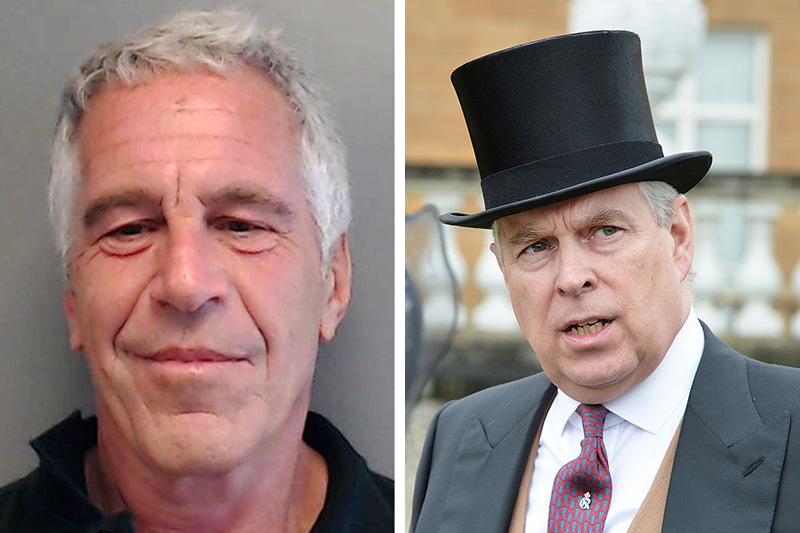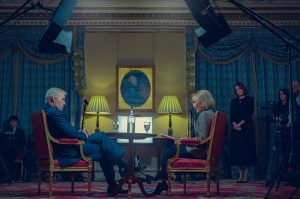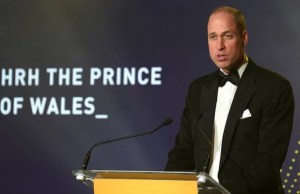What a pair are Jeffrey Epstein and Prince Andrew — like peanut butter and petroleum jelly, like pepper and road salt. With Epstein conveniently self-strangulated, it’s Andrew’s turn to face the music now, as a US judge ruled on Wednesday that the civil case against him can proceed. Andrew stands accused of sexually assaulting a then-underaged American named Virginia Giuffre. He’s alleged to have violated her multiple times, in New York, in London, and on Epstein’s eponymous Pedo Island.
So while the grand old duke of York might have 10,000 men, they’re about to square off against one of the most hellish forces ever to prowl this earth: American lawyers. And cheers to the unwashed hordes in this case. Save for a few British royal flatterers — the sort who appear in trumpeted-up BBC documentaries about the queen’s furniture and insist on drawling the word “incredibly” before every adjective — no one is convinced that the prince is innocent. There is, after all, quite a lot of evidence against him: Giuffre’s ex-boyfriend’s corroborating account, eyewitnesses to the duke’s dirty deeds, that awful, unseeable photograph.
All of which naturally puts one in the mind of Ross Douthat. The thoughtful columnist and last person on earth able to regularly smuggle conservative opinions past the New York Times admittedly isn’t a natural fit for the Epstein fiasco. But Douthat a few years ago wrote an essay that seems worth revisiting today.
The piece, “Why We Miss the WASPs,” is an attack on the modern American conception of meritocracy. Far from being democratic, Douthat argues, the meritocrats have become their own kind of aristocracy, except lacking in the virtues that formed the bedrock of the old WASP aristocrats: piety, service, noblesse oblige. America’s reverence for eminences like George HW Bush is thus more than just gauzy nostalgia; it’s a yearning for the better moral stewardship of an elite gone by.
The left considered Douthat’s point. They stroked their chins. And then they came to a carefully reasoned and penetrating conclusion: Douthat was a racist. For even entertaining the idea of the virtuous WASP, Douthat was said to have convicted himself of the same prejudices held by those WASPs. In a follow-up column, Douthat tried to make clear that he was aware the old elite could be bigoted, that this wasn’t what he was advocating for. “If I had the magic wand to conjure a different elite,” he quipped, “it would be a multiracial, multilingual Catholic aristocracy ruling from Quebec to Chile.” (He’ll first have to get past my ideal elite of a global governing network of Episcopalian folk choirs.)
Yet caterwauling by idiots aside, Douthat’s actual point is worth considering. Are today’s meritocrats simply a new aristocracy? And have they replaced the commendable virtues of the old regatta class with more amoral qualities like “diversity” and “striving”?
On the first question, I think the answer is yes. The meritocrats, in theory anyway, are what both Thomas Jefferson and John Adams saw as America’s “natural Aristocracy among men; the grounds of which are Virtue and Talents.” And while they might not wear dinner jackets, they do have their own unique set of rituals and semiotics that both mark them as elites and massage balm onto their class anxieties. I ride a scooter in the passing lane because I’m saving the planet! The meritocrats aren’t always wealthy as were the WASPs. But then humble-bragging on social media about how you once had to choose between eating dinner and paying the water bill has become another hallmark of today’s self-made elite.
It’s an old observation that the class system in America survives because Americans refuse to admit there’s a class system. And fair enough. But that still leaves open the question as to whether a hereditary stratification is better than this current meritocratic one. And it’s here that we return to Prince Andrew and Jeffrey Epstein. Consider their juxtaposition. One is the very definition of an aristocratic gentleman, son of a queen, veteran of the Royal Navy. The other is an American meritocrat, a Brooklyn working-class boy who used his mathematical genius to haul himself to the top of the financial world.
Yet somehow both ended up at the same dismal place. It’s no coincidence, surely, that wealthy lords of finance like Epstein are often referred to as “American royalty,” while the British Crown is nicknamed “The Firm.” The crooked timber of humanity runs through both; neither a mannered education nor humble origins is a guarantor against it. There are thus good CEOs and bad CEOs, Queen Elizabeth II and King Edward VIII. To portray the meritocrats as uniquely self-serving or venal is to whitewash a whole lot of historical blood.
The bottom line is that we’re always going to have elites, and those elites are always going to abuse their power, whether hereditary or governmental or corporate. The only thing to do, then, is to discomfort them as much as possible while holding them to account when we can.
Which brings us back to His Royal Highness. Prince Andrew was recently asked by one of Virginia Giuffre’s lawyers to prove he was incapable of sweating. The reason? After Giuffre claimed he’d been perspiring while dancing with her at a nightclub, Andrew had triumphantly asserted that this couldn’t be true. An overdose of adrenaline in the Falklands War, he’d proclaimed, had left him unable to sweat!
This was when the music was supposed to have played, the judge roared “acquitted on all counts!” and Andrew swept off into the sunset with his gorgeous lawyer and wisecracking corgi. Instead His Royal Highness the Prince Andrew Albert Christian Edward, Duke of York, Earl of Inverness, Baron Killyleagh, Knight Companion of the Most Noble Order of the Garter, Knight Grand Cross of the Royal Victorian Order, Personal Aide-de-Camp to the Queen has been all but asked to turn over his gym shorts. If this can happen, if the high can be dragged so low, then there may be some punch left yet in these democracies of ours.


















